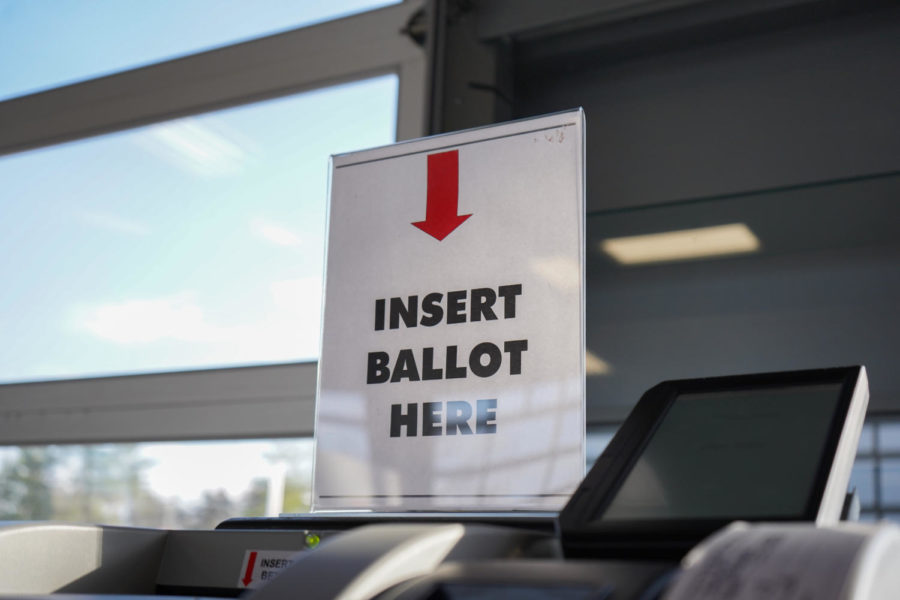Democratic incumbent races results held up due to technical difficulties
An ‘Insert Ballot Here’ sign at Wilson Toyota of Ames on Nov 8
November 9, 2022
Editor’s note: This article will be updated as more information regarding the results is released.
As of Wednesday evening, Des Moines and Warren County have only partially reported ballots cast for the 2022 midterm. Of the 2.2 million registered voters, roughly 1.2 million voted in the election, according to the Iowa Secretary of State’s website.
A few lingering counties
Iowa’s treasurer and auditor races were all too close to call closing out election night after Secretary of State Paul Pate announced the final count could not conclude due to three counties experiencing technical problems.
While the winners of the governor’s, secretary of agriculture and secretary of state’s races settled on Republicans taking the win, Des Moines and Warren County were still uploading ballots into early Wednesday morning.
By 12:24 a.m., Pate said in a tweet he directed the counties to conduct an administrative recount for the delay that accounted for 30,000 ballots. Unofficial results for Linn County came in a little after 1 a.m.
“Those results will not be in tonight,” Pate stated in the tweet. “…I will ensure the ballots will be counted and the integrity of Iowa’s elections will be maintained.”
Here are the unofficial results of the statewide races:
Governor and Lieutenant Governor
Republican incumbent Kim Reynolds with Adam Gregg won the race for governor and lieutenant governor. Due to some counties experiencing technical difficulties, exact voter numbers are still to come.
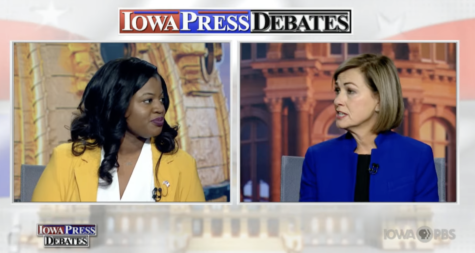
Reynolds has served as governor since she was first elected in 2018. She has goals she plans to tackle following her renewed term as governor. One of Reynolds’ main focuses for the upcoming term is reproductive rights.
According to the Iowa Capital Dispatch, Reynolds aims to ban abortions after six weeks. She has also requested the Iowa Supreme Court to reexamine her proposed 24-hour wait on abortions following the overturn of Roe v. Wade. More information about her goals regarding reproductive rights can be found in another article written by the Iowa State Daily.
Another area of focus for Reynolds is school choice. Reynolds has pushed for state-funded scholarships for private school or homeschool expenses, according to Iowa Public Radio.
Reynolds has also encouraged parents to send their children to schools that follow their faith.
“Democrats and some Republicans have strongly opposed her plan,” the same article published by Iowa Public Radio stated. “They say diverting money and kids away from public school districts will hurt public schools, especially in rural areas that are struggling with population loss.”
Democrat Deirdre Dejear, with Eric Van Lancker, came in second.
Libertarian Rick Stewart, with Marco Battaglia, came in third.
Secretary of State
Republican incumbent Paul Pate won the race for secretary of state against Democrat Joel Miller. Due to some counties experiencing technical difficulties, exact voter numbers are unavailable until Wednesday morning, but the race has been decided in Pate’s favor.
Pate has served as the Iowa Secretary of State since 2015. He has previously served one term before 2015, from 1995 to 1999.
Pate said his campaign was about making sure that Iowans are successful in voting, according to an article published by the Iowa State Daily. Part of his goal to address challenges voters may face includes focusing on voter education and understanding the importance of voting.
Linn County Board of Supervisor candidate Mark Banowetz’s name was not on the Putnam Township ballots. This error was the fault of Miller, who said in a Tuesday evening news conference, “It’s a failure of my office. It’s ultimately my fault, period. I apologize to the candidates and to the voters. This should not have occurred.”
Miller defended himself through a tweet, calling out Pate for a mistake on his part when he forgot to put the Gun Rights Amendment on the 2020 general election ballot.
Auditor of State
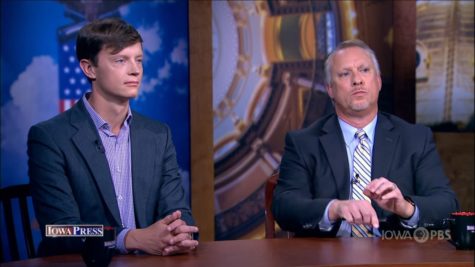
Republican Todd Halbur announced his concession of the race to Democrat incumbent Rob Sand in a Facebook post.
“My campaign unfortunately lacks the resources and manpower to conduct a legitimate recount in this statewide race,” Halbur wrote.
Sand served as the assistant attorney general from 2010 to 2017. He was elected to be the auditor of the state in the 2018 election.
Sand claims to have a “political brand that transcends party lines,” according to his website. His campaign focused on his previous experience and results during his time in the office. Sand’s campaign also focused on truth, integrity and accountability, according to an article published by the Iowa State Daily.
Halbur’s campaign website claimed he was a fresh voice with common-sense ideas
Two of Halbur’s ‘common sense ideas’ included replacing the outdated and antiquated system that has been in place since 2003 with a more comprehensive and updated system and installing upgraded risk management software tools for all Iowa agencies.
Halbur has experience in the banking and finance industry and has created a platform of integrity, honesty and dedication.
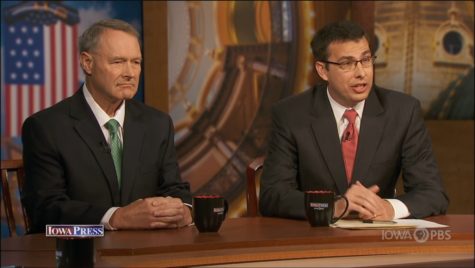
Treasurer of State
Republican Roby Smith beat Democratic incumbent Michael Fitzgerald’s race for state auditor. The Associated Press called the race with Smith at 51.3 % and 48.7% of the ballots counted.
Fitzgerald ran for his 11th term in this year’s election. He has served as the Iowa treasurer of state since 1983.
Smith had several goals outlined on his campaign website. He said he will stand up to President Biden and protect the financial privacy of working Iowa families. Roby also claimed that he will work to improve financial literacy education across the state. He also plans to reform the 529 College Savings Plan, a program that Fitzgerald started.
Attorney General
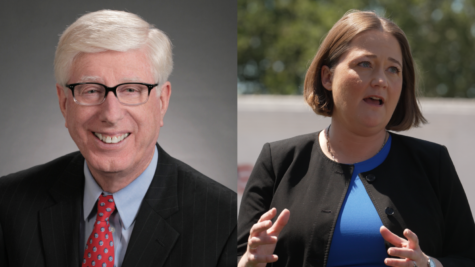
Before all ballots were in, Democratic incumbent Tom Miller conceded the race for Iowa Attorney General to Brenna Bird. While results are still unofficial, Bird holds 50.80% of the votes, and Miller holds 49.13%.
Miller is the longest-serving attorney general in the United States.
Bird has served as the elected County Attorney for Guthrie County since 2018.
She ran for attorney general for the state because she “believes Iowans have never been in greater need of an attorney general who will fight back against Biden’s radical agenda, protect the rights of Iowans and stand up for the rule of law,” according to her campaign website.
Secretary of Agriculture
Republican incumbent Mike Naig is ahead of democrat John Norwood in the race for secretary of
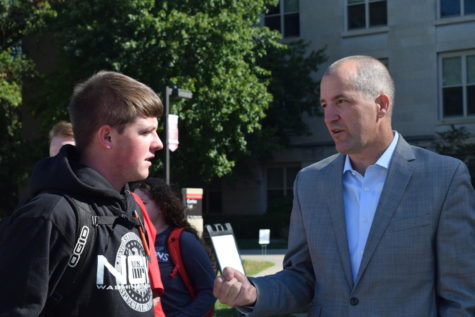
agriculture. Due to some counties experiencing technical difficulties, exact voter numbers are unavailable until Wednesday morning, but the race has been decided in Naig’s favor.
Naig has served as the Iowa secretary of agriculture since being elected in 2018. Naig had three campaigning points outlined on his campaign website.
Naig wants to focus on expanding markets and trade, improving water quality and soil health and ensuring the future of agriculture remains bright.

